Once the ornaments get packed away and the lights come down, Christmas trees soon become a sad sight lining curbs across the land.
But some creatures still find them appealing.
Mike Robinson, co-owner of RMT Farms in Litchfield, said his goats love to eat those old trees.
Andrea Bannister, who has a small family farm in Pittston, said last week her goats, too, “really enjoy” a chance to gobble up the needles.
“One of the goats is pigging out on one right now,” she said.

One of the goats is seen Thursday at RMT Farms in Litchfield. After area families are done enjoying their Christmas trees, the goats like to eat the needles and bark for a post-holiday treat. Joe Phelan/Kennebec Journal
“It’s like a kid in a candy store when you throw a Christmas tree in their pen,” Robinson said.
Robinson said the goats get so excited when they spot a tree coming their way that they start running to it.
“They’ll go nuts to eat it,” he said, and quickly strip it.
“They pick ’em right clean,” Bannister said.
“They like something green and fresh,” said Pogo Pogorelc of Friends’ Folly Farm in Monmouth, who has been raising goats for three decades.

Brad Wallace of Augusta drops off a Christmas tree Thursday at RMT Farms in Litchfield. The farmers there collect trees to feed to their animals. The bare trunks are later run through a chipper and used a mulch. Joe Phelan/Kennebec Journal
She said that feeding trees to goats and other grazing animals “is very common, especially here in Maine.”
Farmers across the country are increasingly taking old Christmas trees to feed goats and other animals that find needles and bark a great treat at a time of year when there’s not a lot to liven up their diets.
Bannister and Pogorelc each said that during the winter, the animals typically have to make do with dry grains and dried hay, which makes something fresh especially appetizing.
Iron Leaf Farm in Litchfield, which also takes Christmas trees, said that pine needles provide trace nutrients, antioxidants, minerals and forage for goats — as well as serving as a natural de-wormer.
The trees are “very, very beneficial to the goats, emus and alpacas” that greedily gobble them up, Robinson said.
It’s a fate far more environmentally friendly than disposing of them in landfills.
Robinson said one of the big reasons his farm collects trees from people across a wide swatch of central Maine is that he doesn’t want to see the trees go to waste.
He said that once the goats have chewed up the needles and nibbled off the bark, what’s left of the trees is ground up to create bedding material for the animals.
Nothing is squandered, he said.
Pogorelc said trees are especially good for goats.
“They’re kind of lazy,” she said. “They don’t want to lean over” to eat, which makes them the perfect grazing animal to clear a neglected pasture of saplings or to gobble up a decent chunk of a Christmas tree thrown their way.

Goats eat grain in their trough at feeding time Thursday at RMT Farms in Litchfield. The shelter, in background, is covered in donated Christmas trees that the goats strip bare and eat. Joe Phelan/Kennebec Journal
Farmers who accept trees said they cannot have tinsel or other festive debris, but otherwise are not picky about them.
Pogorelc said goats, for instance, can safely eat every evergreen except yew trees, an ornamental species common in Europe.
Robinson said that he and his partners inspect every tree to make sure there’s nothing on them before handing them over to the animals.
They occasionally come up with an ornament someone missed. They try to return them.
A number of farms in the area accept trees that are dropped. Robinson said he will even come pick them up, an annual exercise that doesn’t usually end until February.
He said that last year, they wound up with 200 trees. As of Thursday, they already had 170 as the farm expands its reach into more towns.
Send questions/comments to the editors.


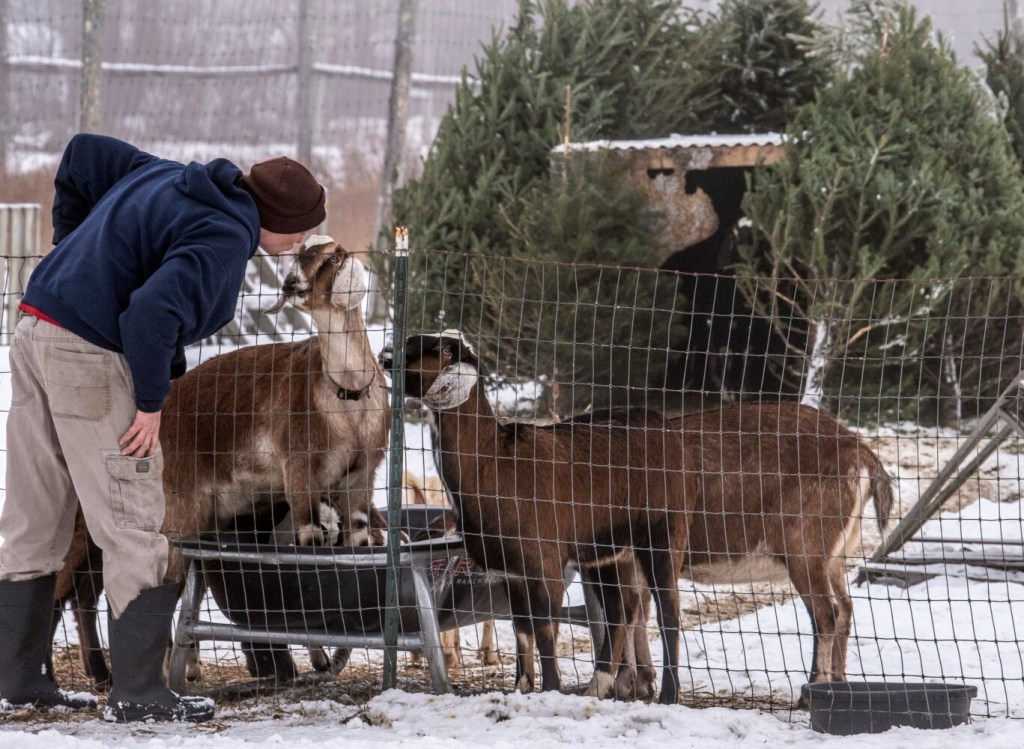

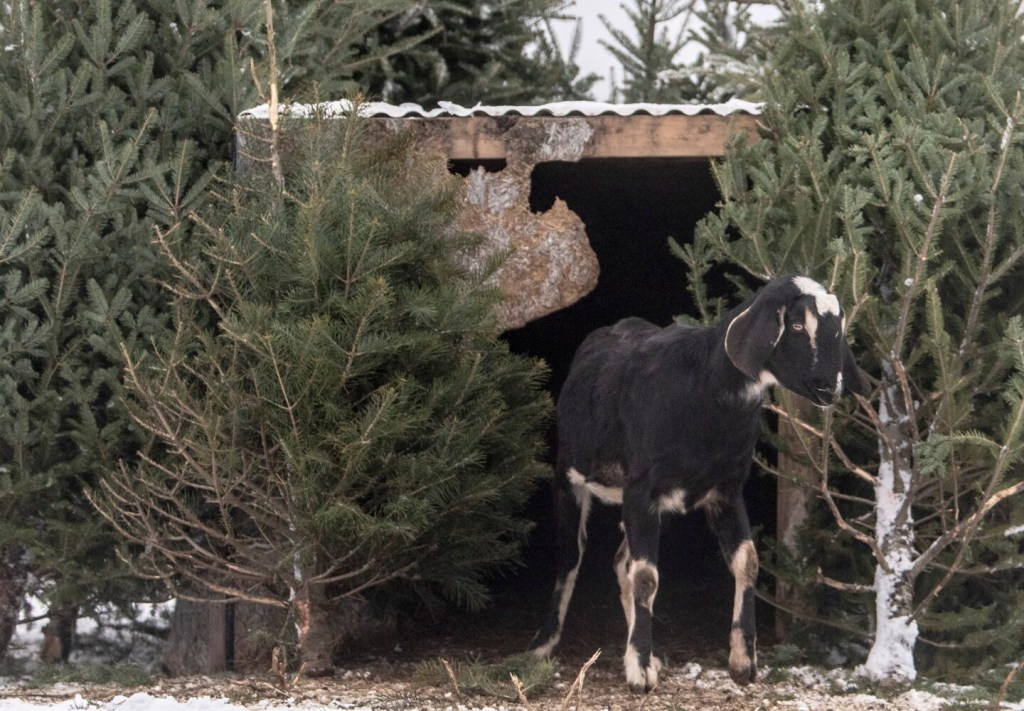



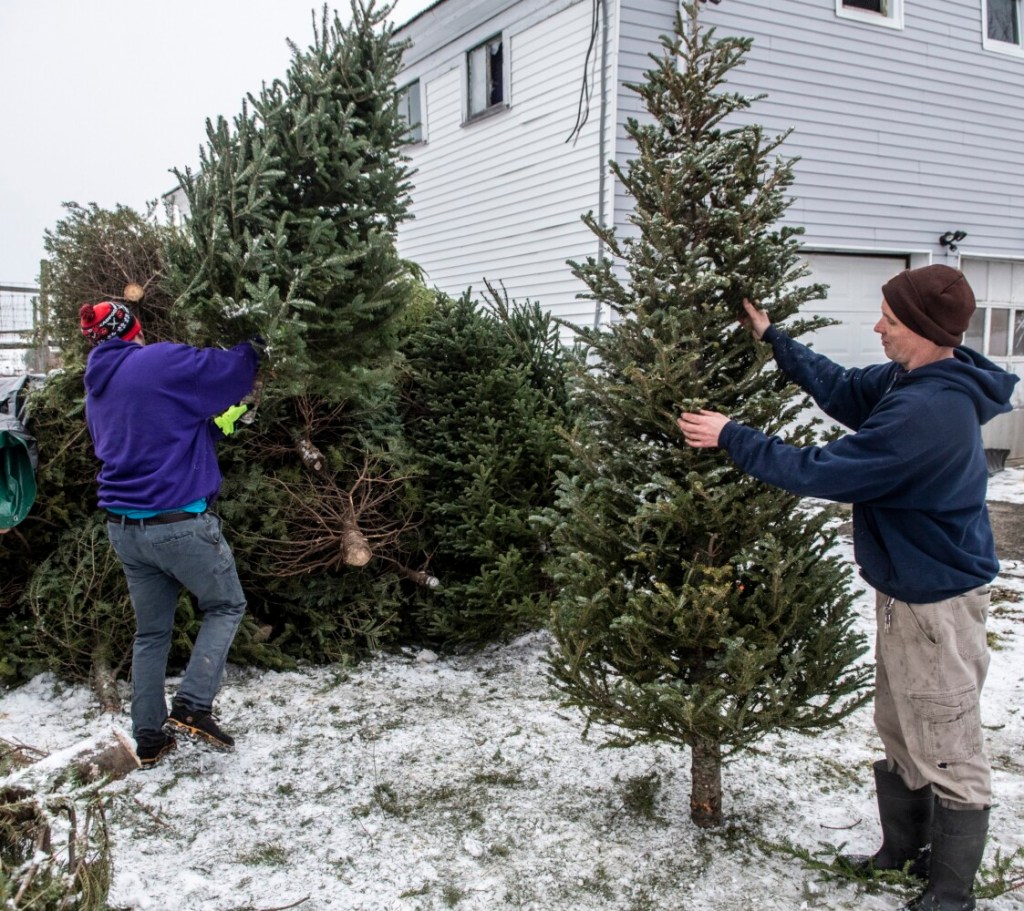
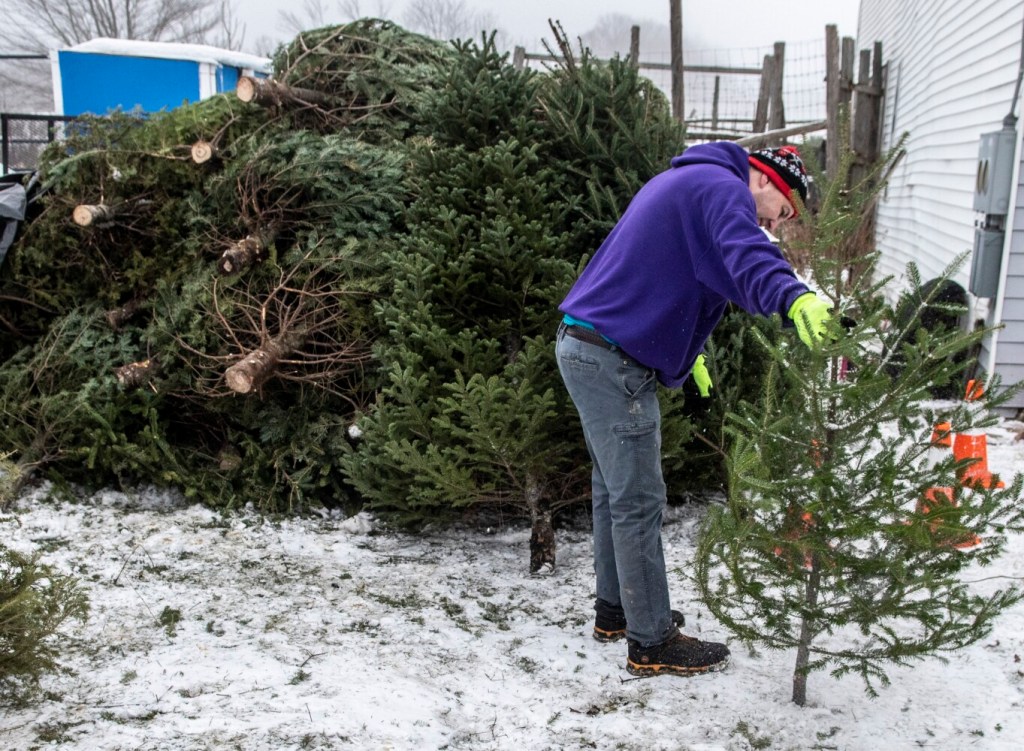

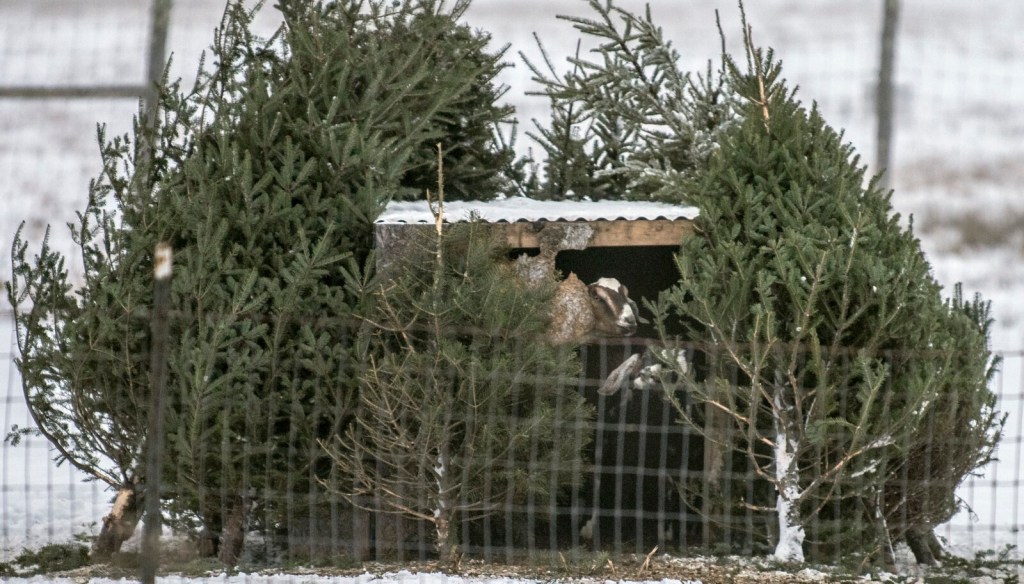
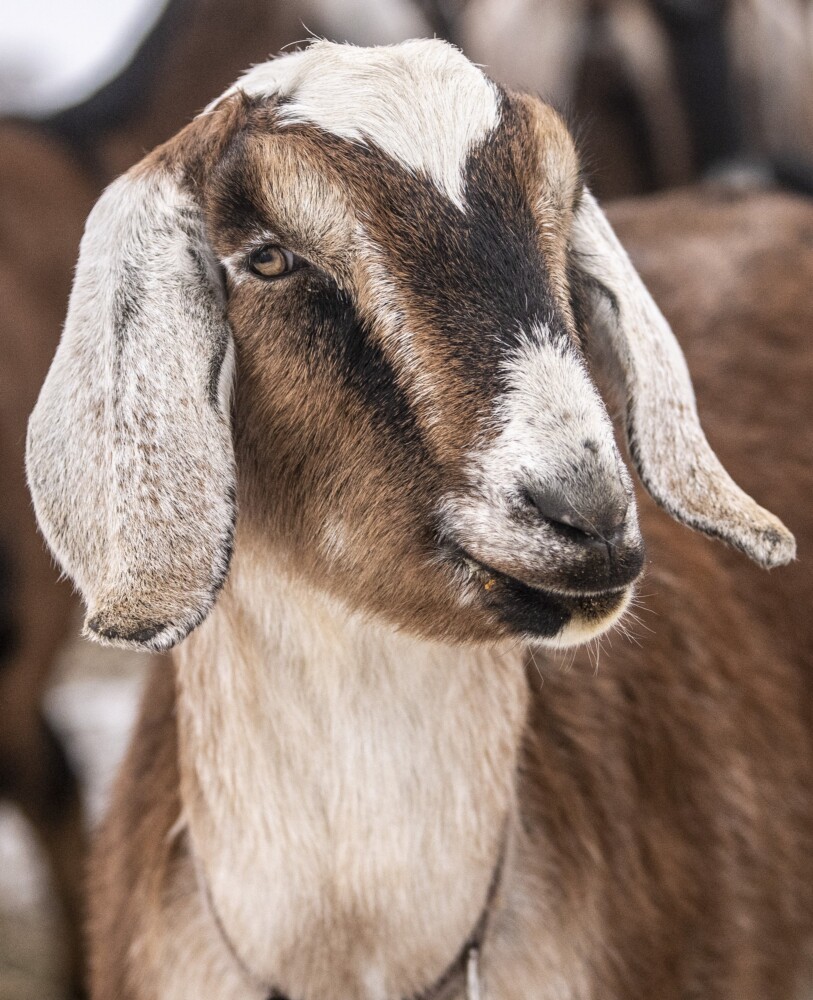


Comments are no longer available on this story